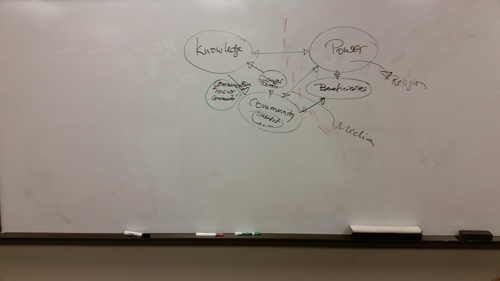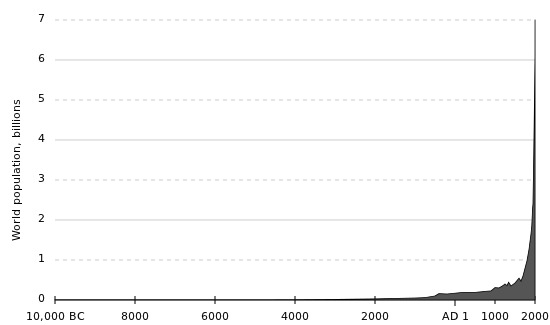 |
|
 |
MARI News Press Releases Blogs&Lists About Us Newsletter Disclaimers |
Science in Literature: Reflections on the Social Constructs of Science in Society
Course: OEAS/ENMA 795/895 Advanced/Special Topics (three credits);
Course title: Science in literature: reflections on the social constructs of science in society;
Instructors: Dr. Hans-Peter Plag, Dr. Michelle Covi, Michelle Heart;
Term: Fall 2014.
Notes Week 7: Failed Warnings or the Failure to Warn?
During the first part, the class focused on the question of how authors who identify global threats and issue warnings may be impacted in their warning by their life history. Several comments had been provided prior to the class (see Week 7 Blog). For the authors of two of the essential documents (Ehrlich and Diamond), it was not straightforward to identify elements in the life history that could be linked to their warnings, although it was noted that there were similarities in their life history. It was discussed that cultures seem to have a boom-and-burst cycle, which in two documents were estimated to last on the order of 200 to 500 years. The development of the world population (see the graph below) was visibly impacted by some of these events. It was noted that population numbers increased over time with a number of wiggles, and that the exponential increase is mainly restricted to the last few hundred years.
The second part of the class focused on how society addresses emerging extreme risks. It was not clear to what extent science played a role in this in former cultures. It was noted that those with power in societies often tried to regulate knowledge and have a role in deciding what knowledge could be used for decision making. Examples used to illustrate extreme cases were those of the inquisition and the Nazis in Germany. The question of when and how transitions from strong control and rejection of scientific knowledge took place remained open. Reference was made to “Deus ex Machina” as a possible analog for how seemingly unsolvable societal problems could be solved: by the introduction of new challenges that rendered the existing ones irrelevant.
An attempt was made to develop a conceptual model of how knowledge is used or impacts in societal decision making. The sketch reproduced below indicates the interplay between society as a whole, the collective knowledge, and those representing the power inside a society.
Discussion topic for week 8: Discuss the main elements in community decision making in response to an emerging extreme risk.
To see the picture in higher resolution, just click on the picture.
 |
 Global Population since 10,000. Source: Wikipedia. |